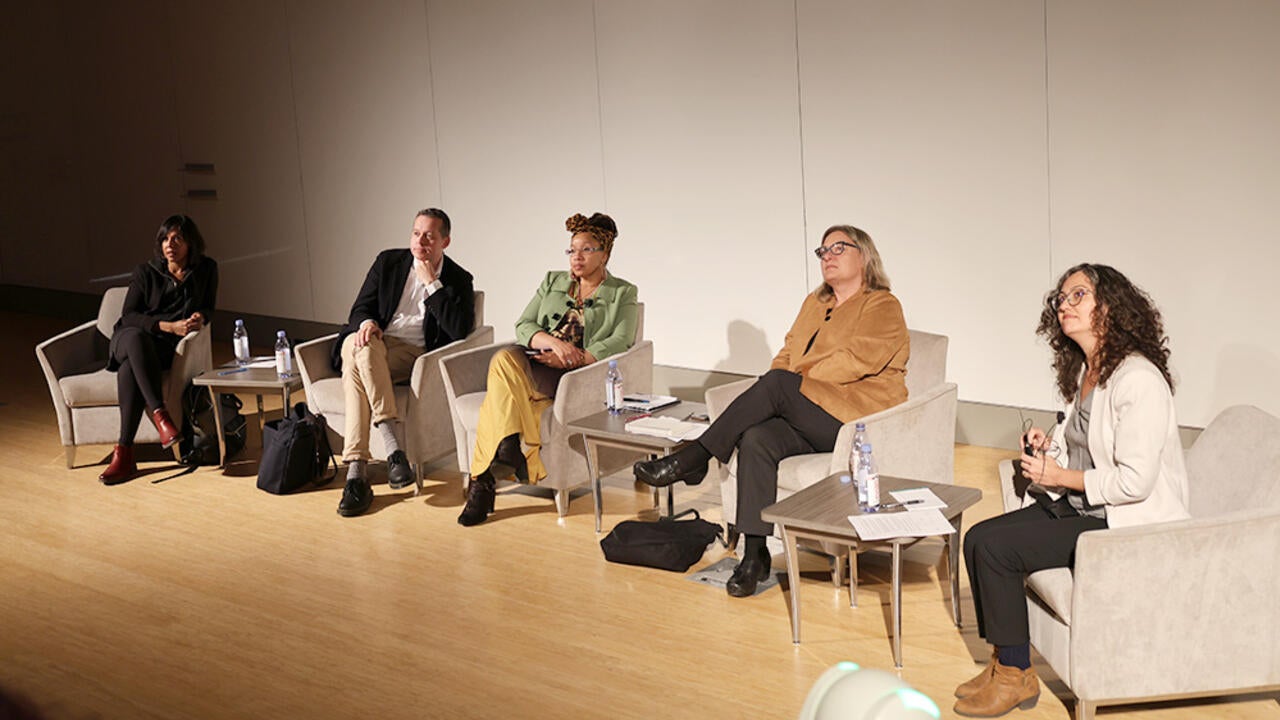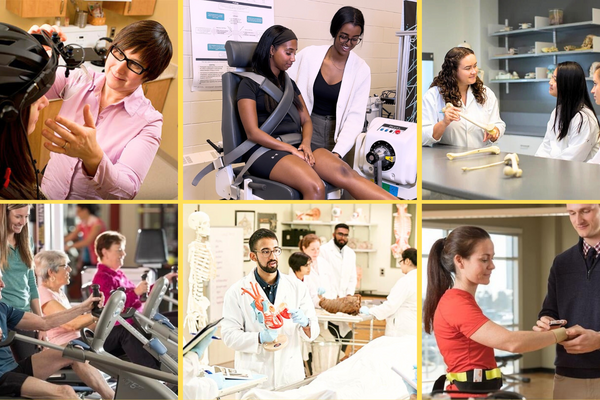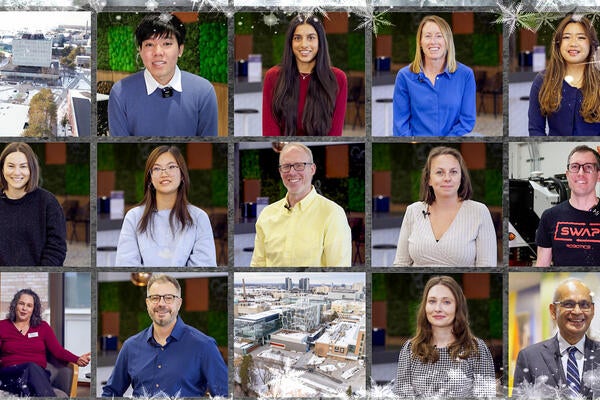
Waterloo facilitates discussion on antagonism and intimidation in academia
Inaugural talk opens the conversation on gender and race in academic research and pedagogy

Inaugural talk opens the conversation on gender and race in academic research and pedagogy
By Bernice Ma University RelationsNew ideas, insights and discoveries are constantly being cultivated in higher education. While academic debate between opposing points of view is at the heart of the search for knowledge, professors and students may experience targeted attacks by those who feel threatened by their work and its impact on society.
On October 24, 2023, the University of Waterloo hosted “Antagonistic responses based on gender and race in the academy.” Organized jointly by the Faculty of Arts and the Office of Research, this is the first in a series of talks to facilitate discussion around the experiences of scholars who have faced oppositional responses grounded in extreme emotion rather than reasoned analysis.
As we have recently witnessed, scholarship related to social justice in all its dimensions is regularly targeted. Likewise, mistrust, suspicion and entrenched belief systems have repeatedly generated antagonistic responses to scientific and technological research, as many scholars of evolution, climate change and vaccine research can attest,” said Dr. Sheila Ager, dean of the Faculty of Arts.
The inaugural talk explored several important topics, such as gendered harassment and workplace threats of violence, anti-racist work by Black women, structural inequalities, ideological social injustices and maintaining respectful learning environments when differences of opinion arise.
"I am pleased to be part of this important discussion about antagonism and intimidation in academia and welcome the opportunity to reaffirm Waterloo’s stance against all forms of hate, discrimination and violence. Scholars in various fields have experienced deeply hostile reactions to their work and this series seeks to uncover the root causes of the hostility and develop effective counter strategies,” said Dr. Charmaine B. Dean, vice-president, Research and International. “We need to work harder to facilitate discussion on subjects that challenge systems and have good discourse to move forward as a community.”
Dr. Suzan Ilcan, professor and University Research Chair in sociology and legal studies and chair of the lecture series, began the conversation by introducing the expert panel. The panel included Dr. Carla Fehr, Wolfe Chair in Scientific and Technological Literacy and associate professor of philosophy, Dr. Laura Mae Lindo, assistant professor of philosophy, Logan MacDonald, assistant professor and Canada Research Chair of Indigenous Art and Dr. Rashmee Singh, associate professor of sociology and legal studies.

Left to right: Dr. Rashmee Singh, Professor Logan MacDonald, Dr. Laura Mae Lindo, Dr. Carla Fehr and Dr. Seçil Dağtaş
As the gender and social justice program advisor and a researcher on diversity in science, technology, engineering and mathematics (STEM), Fehr explained that she has been forced to confront and address sexual harassment. “The message that I receive from the antagonism, intimidation and silencing that I get, is not only that I should not be researching what I research, or teaching what I teach, or saying what I say, but it's also a message that I shouldn't be here,” said Fehr. “As a response, I stopped speaking publicly about my work for years.”
Fehr now focuses her research on resisting incredulity and silencing in response to these issues to create a community where values and practices are consciously anti-racist and to consider what a non-patriarchal culture looks like on campus.
Echoing a similar thought, Lindo challenged how universities think about curriculum and emphasized the need to take a stance. “We're not going to debate whether a person is human. We're not going to debate whether trans lives matter, Black lives matter, or Indigenous lives matter. We're going to start with the assumption that you didn't come here, thinking that that's a valid debate. Instead, you’re coming here to grapple with the thoughts that all those folks have, that you have missed out on, because we have a curriculum from kindergarten that never taught you about it,” said Lindo.
During the question-and-answer period, Singh was asked about claims of indoctrination and conversations with those who oppose her teachings. “We can explain what we do to counter some of the claims raised about gender studies, critical race theory and feminist theories about the scholarship that we teach and the kind of research that we do. If we start to engage more to try and challenge these ideas, that might be a way to move forward.”
When asked about addressing views that are not welcome, MacDonald acknowledged his privilege when deciding what content is being delivered in his classroom. “My expertise is formed by my background, my socio-economic status, as well as my political beliefs. We don't necessarily have to arrive at common ground, and we can agree to disagree, but violence is not an option, and it should not be tolerated on any level.”
While many challenges persist, panellists also highlighted several successful initiatives implemented to foster a more inclusive and equitable environment. Fehr outlined a site visit program where professors from institutions across North America conduct assessments of the culture in departments with signs of “gender trouble”. The team conducts focus groups and interviews to suggest interventions. “We’re taking our roles as researchers and teachers and putting it together to create change agents.”
Lindo highlighted the social justice work happening across campus. “We’re making the kind of change that we're looking for, not just in building community, but helping us as researchers to sustain the energy needed to keep doing the work when there are people in our field who are saying that our work isn't worth doing or investing in.”
The next talk, “Antagonistic responses to science and technology in the academy” is scheduled for Wednesday, November 29, 2023. Speakers from the Faculty of Arts, Faculty of Math and Faculty of Science will form the panel. Stay tuned for the registration link.

Read more
The second in the series centred a dialogue on antagonistic responses to science and technology

Read more
From optometry and pharmacy to public health and therapeutics, Waterloo alumni are powering Canada’s health care sector

Read more
A winter holiday message from President Vivek Goel
The University of Waterloo acknowledges that much of our work takes place on the traditional territory of the Neutral, Anishinaabeg, and Haudenosaunee peoples. Our main campus is situated on the Haldimand Tract, the land granted to the Six Nations that includes six miles on each side of the Grand River. Our active work toward reconciliation takes place across our campuses through research, learning, teaching, and community building, and is co-ordinated within the Office of Indigenous Relations.